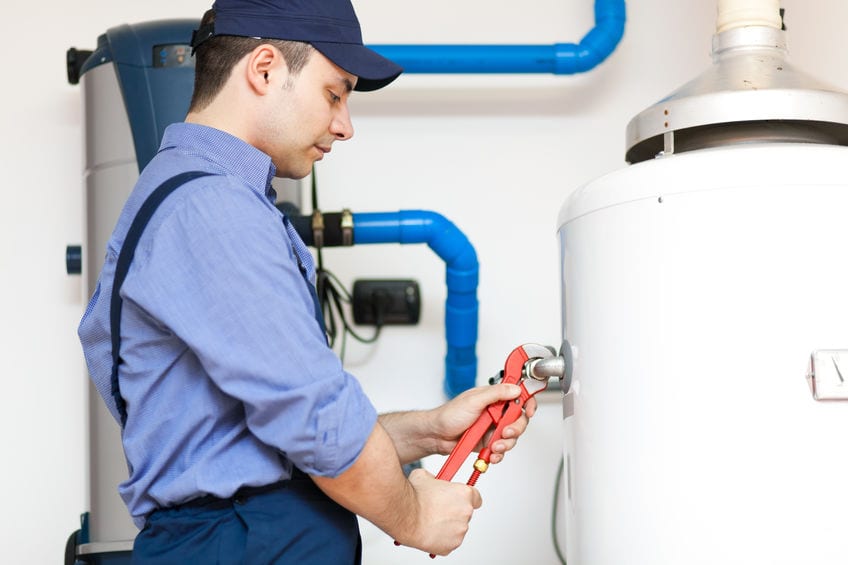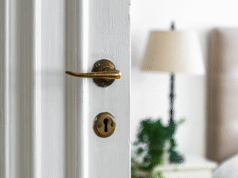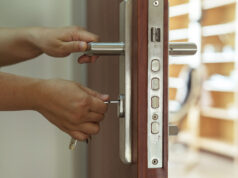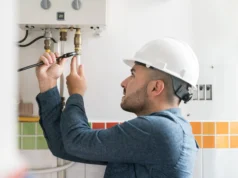Replacing a water heater may seem simple, but there’s more to it than swapping tanks. For most homeowners, it’s a once-in-a-decade decision. That’s why knowing what happens during a water heater installation in NJ helps you stay informed and make the right choices.
You don’t need to be a plumbing expert to understand the process. You just need to know what’s involved, how long it takes, and what to expect from the professionals doing the job. This clarity helps you feel confident and ensures you get reliable hot water without stress or delays.
This blog outlines the whole installation process, step by step. Whether replacing a failing unit or upgrading for efficiency, you should know everything before the plumber arrives.
Step 1: Arrival and Site Inspection
Every installation starts with a site check. The plumber arrives with your new water heater and tools, then assesses the current setup.
- The installer examines your old unit, checking pipe connections, venting, and access to gas or power lines.
- They also confirm the tank location, floor condition, and drainage to ensure your new system will operate safely.
- They’ll flag updates like pressure valves or expansion tanks, based on state or local NJ plumbing codes if needed.
Step 2: Shutting Off Water and Power
To begin the replacement, the technician turns off the water supply and disconnects any power or gas.
- This means switching off the circuit breaker and ensuring no current flows to the unit for electric heaters.
- The gas valve is safely closed and sealed off for disconnection for gas models.
- After this, the water heater is drained fully using a hose, making it light and safe to remove.
Step 3: Removal of the Old Unit
The old water heater is now disconnected and removed from your home.
- Pipes, vents, valves, and any insulation around the tank are carefully detached.
- The tank is lifted or wheeled out using proper safety equipment and hauled for recycling or disposal.
- The plumber also inspects the surrounding connections to prep for the new unit.
Step 4: New Heater Setup and Installation
Now comes the main event—installing your new water heater.
- The plumber positions the new unit and ensures it’s level and supported. Then, any code-required risers, pans, or straps are installed here.
- Connections are made to your cold water supply, hot water output, and gas or power lines.
- Seals, soldering, and fittings are checked to prevent leaks or future issues.
Step 5: System Testing and Temperature Setting
After everything is connected, your plumber runs several tests.
- The tank is filled with water to check for pressure stability, leaks, or loose connections.
- The gas or electricity is turned on, and the heating element or burner is tested.
- Most systems are set to 120°F, which is safe, comfortable, and energy efficient for everyday use.
Key Things to Expect During Installation
Here’s a quick summary of what typically happens during a standard water heater installation in NJ:
- A licensed plumber inspects your setup and prepares the site
- The old water heater is disconnected, drained, and removed
- The new unit is positioned and connected to the existing plumbing
- Testing is done to ensure proper function and safe operation
- The plumber provides guidance on use, maintenance, and warranty
Most standard tank installations take between 2 and 4 hours. Tankless systems or homes needing upgrades may take longer.
What You Can Do to Prepare
Making a few small preparations before your installation appointment helps everything run smoothly:
- Clear the space around your current water heater so the technician has easy access.
- Move storage boxes or furniture that may block the work area.
- Note any issues like past leaks, strange noises, or water quality changes to share with the plumber.
- Ask questions in advance about permits, warranty coverage, or expected energy savings.
These simple steps help save time on the day of the installation.
Benefits of Hiring a Licensed Professional
Water heaters must meet safety standards, and in New Jersey, many towns require permits or inspections after replacement.
- Licensed plumbers like Zeek Plumbing ensure every connection follows state codes.
- They use professional tools, certified parts, and proven safety checks.
- You also receive proper documentation, including product warranty info and service receipts.
Hiring a professional isn’t just about convenience. It’s the best way to get a safe, long-lasting installation.
Final Thoughts: Plan for Reliable Hot Water
A properly installed water heater keeps your home running smoothly, whether you’re showering, doing laundry, or washing dishes. It’s one of those systems that works quietly in the background, but only when installed correctly.
When you understand what happens during a water heater installation in NJ, you can plan your time, ask the right questions, and avoid surprises. It also helps you choose a licensed team that gets it right first.
NJ-WaterHeater offers trusted installation services across New Jersey. Their experienced plumbers follow all safety codes and manufacturer guidelines. If you’re ready for a new system, let their team handle it from start to finish—safely, quickly, and professionally. Book your installation today and enjoy hot water.








